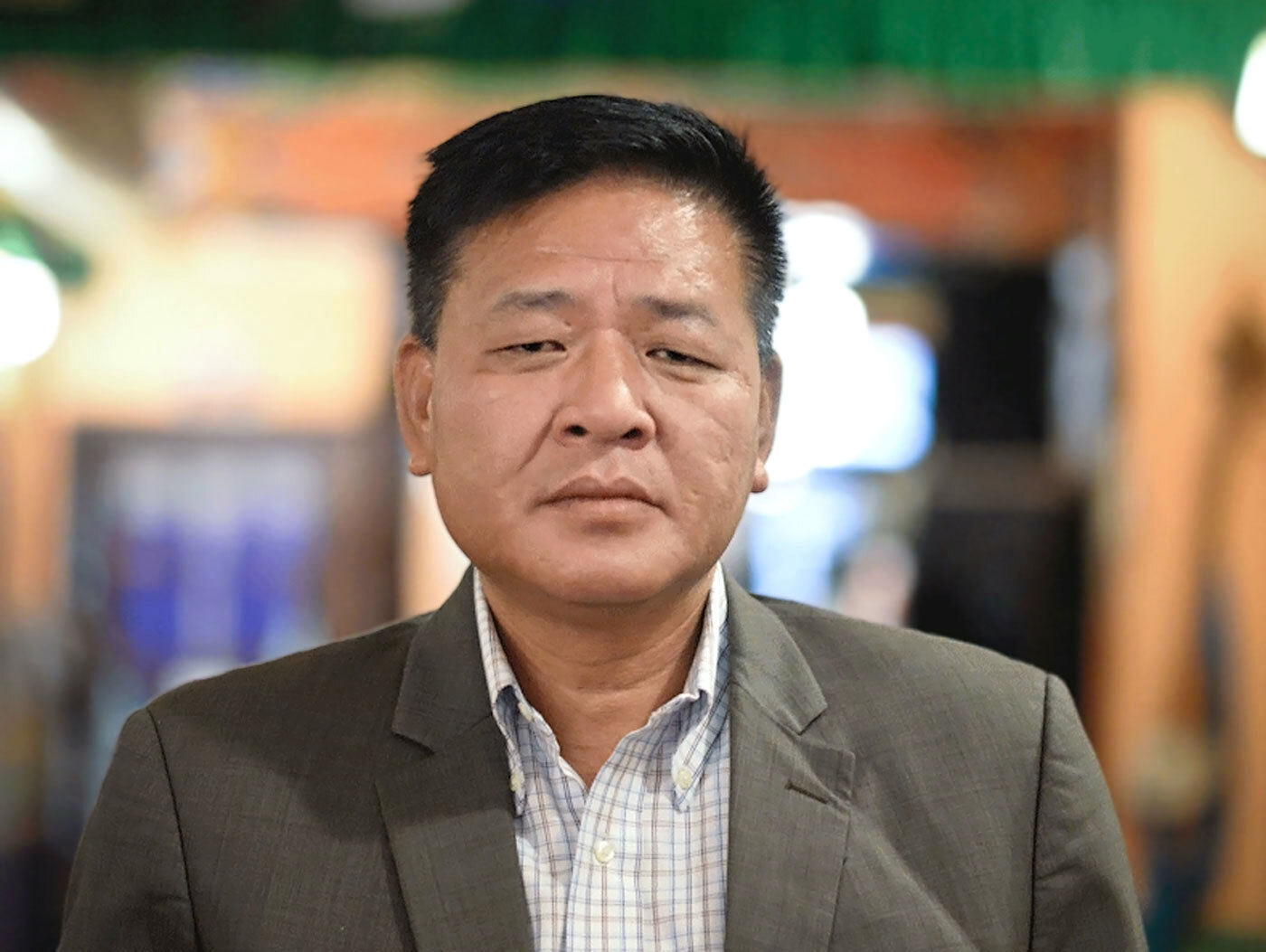How UK Politicians Are Learning to Disagree—More Agreeably
In the often heated, sometimes chaotic halls of the UK Parliament, scholars, thinkers, politicians, and policy-makers have been weaving in threads of mindfulness. The result: not a change in ideologies but a shift toward more positive and productive relationships...

Just imagine for a moment a room full of politicians from opposing government parties, sitting in the same room together, in silence, meditating. It’s hard to fathom such a vision in a time of worldwide political upheaval, punctuated by war, social media scandals, and a climate emergency. In the United Kingdom, however, this image has become a reality. While not a remedy for all problems—simple or complex, political or personal—mindfulness has gained government support in the UK in an effort to help politicians manage their stress levels, regulate their emotions, and improve their overall well-being, as well as that of their constituents.
Mindfulness first made its way into the historic halls of Westminster—the building complex where both Houses of Parliament meet—in 2013, when 22 cross-party members from both the House of Commons and the House of Lords (think House of Representatives and Senate in the United States, but in the UK, House of Commons is an elected body and House of Lords is appointed) attended an information session about a course on mindfulness. Sitting in an oak-paneled room on squeaky wooden chairs assembled in a semi-circle, with a large window looking out onto the Thames River, the politicians in the room—many wary about being connected to a mindfulness-related event—had been promised that their identities would be kept private, and that there would not be any sort of mindful movement that may make them look uncomfortable amongst their colleagues— friend or foe. “Some politicians felt they may be perceived as mentally weak if they attended mindfulness sessions, and we wanted to respect their concerns,” said Chris Ruane, who was then a parliamentarian and who is largely responsible for bringing mindfulness into the UK’s legislative body.
Once the parliamentarians attended the opening session on mindfulness and neuroscience—learning its potential for improving mental health—the hope was that they’d agree to sign up for the remaining seven classes. “We felt fairly confident that we had a way of presenting this work that would not be frightening,” said Mark Williams, who co-taught the class and is professor of clinical psychology emeritus at Oxford and a cofounder of Mindfulness-Based Cognitive Therapy (MBCT). “We wanted to provide a gateway that they’d feel comfortable with to expand their awareness of what mindfulness is and its possibilities.”
What Mindfulness in Parliament Looks Like
Ruane first discovered mindfulness while helping his daughter research an assignment in her high school class on comparative religion. As he listened to meditations and dharma talks on his train commutes to London, Ruane wondered whether he could bring the benefits of a daily mindfulness practice—and his own discoveries around awe, gratitude, curiosity, and present-moment awareness—to his workplace. As a politician, he especially came to recognize the impact of self-regulation in his high-stress work environment. “Something would come to my mind and it was out of my mouth before I knew I said it,” said Ruane. “I am now master of my emotions, including anger, which is key in politics, where there can be so much hypocrisy.” It’s been nearly 10 years since Ruane, along with several members of the House of Lords, invited two mindfulness experts from the University of Oxford to teach an eight-week MBCT course. Now, the course has been taken by more than 300 parliamentarians and over 800 staff members. A core group of about 20 attend a weekly drop-in class and participate in twice yearly silent retreat days.
“Something would come to my mind and it was out of my mouth before I knew I said it,” said Chris Ruane. “I am now master of my emotions, including anger, which is key in politics, where there can be so much hypocrisy.”
The course, which is still being taught, is based on the book Mindfulness: Finding Peace in a Frantic World, co authored by Mark Williams. The curriculum—the same taught to Oxford students—introduces interested politicians, policy makers, and their teams to the foundations of mindfulness, covering topics such as the difference between doing and being and how to face challenging emotions. Each class also incorporates practices, including breath meditations, body scans, mindful eating and walking, self-kindness, and compassion.
The benefits of mindfulness for politicians—similar to those of any high-stress environment—have been making their mark on a growing number of parliamentarians and UK policies. Jamie Bristow, codirector of the Mindfulness Initiative, a policy think tank, reports seeing an improvement in the decision-making process. The politicians who took the course began to speak more civilly to one another, to disagree better. Polarity reduced. Even those with diametrically opposed views could “still develop better working relationships,” he said. “I got the sense they became less identified with their own beliefs, so were able to have their beliefs criticized without taking it personally.”
Originally, a larger number of left-wing parliamentarians signed up for the mindfulness class, but eventually, politicians from other parties joined too. “There was a sense of acknowledgment where natural enemies recognized each other from the mindfulness class, and said how lovely it is to meet one another in the corridor,” Williams said.
Mixing Practice and Policy
After seeing for themselves the benefits that come with mindfulness practice, the initial group of newly mindful politicians grew interested in the science of mindfulness and began thinking about how to fit it into policy-making. In 2014, the Mindfulness Initiative helped this group of cross-party politicians create the Mindfulness All-Party Parliamentary Group (MAPPG)—a parliamentary club made up of co-chairs from several political parties—to review the scientific evidence and current best practice in mindfulness training, develop policy recommendations for government based on these findings, and provide a forum for discussion in Parliament about the role of mindfulness and its implementation in public policy.
The MAPPG subsequently set out to explore the potential impact of mindfulness on four areas: health, education, criminal justice, and the workplace. It combined academic evidence, reporting on existing mindfulness-based interventions, and assessment of societal needs for each area, resulting in a 2015 report titled “Mindful Nation UK,” which included recommendations to Parliament and case studies from each of the four areas—so real voices could be heard along with evidence and research findings. Finally, nine hearings were held in Parliament with academic experts, school children, ex-offenders, and mindfulness teachers to provide evidence to members of parliament.
The Mindful Nation report, which was quickly shared around the world (and since translated into Spanish, Portuguese, and Croatian), led to a host of politicians in other countries asking how they can do something similar. In an effort to share their knowledge, progress, and best practices, the MAPPG, along with the Mindfulness Initiative, hosted the first international “Mindfulness in Politics Day” in 2017—a gathering that was attended by 40 politicians from 14 countries. Led by Jon Kabat-Zinn, the attendees practiced mindfulness and discussed its significant effects on public policy and political processes—more specifically, how politicians can hone skills for disagreeing better and bring greater cognitive awareness into adversarial spaces. Since then, several countries, such as Denmark, France, and the Netherlands, have launched their own Parliamentary mindfulness courses.
Practice Isn’t Perfect
While mindfulness continues to permeate the halls of Westminster and beyond, the reality remains that the number of politicians practicing is relatively small. “Although some of the parliamentarians are quite visionary about what mindfulness could be to them and to politics, what’s seen in the debating chamber is still a minority, and for some who have taken the course, it’s far from a daily practice,” said Bristow. “As I like to say, the petals of a flower need to open all at once; you can’t put it on one petal.”
A politician’s day involves constantly switching from subject to subject, focusing on constituents and their problems, concentrating in the chamber, and fielding thousands of emails. “We hear from politicians that mindfulness is able to bring them attention regulation, compassion for constituents, self-forgiveness, resilience, and an ability to keep things in perspective,” says Bristow. “Using mindful awareness to stay tuned in to their inner compass can keep them on the right track.”
In a 2019 article in Current Opinion in Psychology, Bristow addresses some of the unique challenges faced by an elected representative, which, he writes, may explain the growing appeal of mindfulness practices for politicians. Mindfulness, he explains, is helpful in the areas of attention and focus, as 24-hour newsfeeds, social media, and a plethora of briefing papers can overwhelm one’s concentration. An ability to better self-regulate and tame reactivity—in order to avoid regrettable responses in the face of the public eye and debate skillfully (read: respectfully)—is another well-reported benefit. Including kindness and self-compassion as priorities has played an effective role for parliamentarians who report greater empathy for the public, as well as improved coping skills for times they’ve made mistakes. Lastly, Bristow points out the impact of meta-cognition—thinking about thinking and how politicians express how mindfulness helps them keep perspective and create some space between a thought and “the truth.”
Even with a minority of the country’s politicians practicing mindfulness—the UK has one of the largest legislative bodies, with 650 members of the House of Commons and another 778 in the House of Lords—the transformation to accepting it as a tool for improving mental health and reducing daily stress levels has gained momentum. Powerful non-practitioners have voiced support for the initiative, such as Sir Lindsay Hoyle, the current Speaker of the House of Commons, who in response to what he described as “disgraceful behavior in the chamber,” in February 2022, later tweeted: “Our words have consequences, and we should always be mindful of that fact.”
Disagreeing, Agreeably
Since its debut, the zeitgeist around mindfulness has morphed, bringing a sense of deeper interpersonal connection. “The people who continue to practice together sometimes open up about issues from their childhood or about bereavement,” explains Ruane. “It’s hard to bare your soul to people from different political parties in the evening and then be nasty the next morning.”
The parliamentarians who have gone through mindfulness training have been very open about their stress, according to Mark Williams. “It was more than simply a job, but also the worries of social media, death threats, and the necessity of security detail in their homes,” he said. “These are people with highly pressurized jobs looking for something that gives them a sense of peace and insight into the cascading mind, and to have the resources to do the job they mean to do.”
The adversarial nature of the Parliament, with lines of benches facing each other, does not lend itself to mindful listening. But after sitting and practicing in small mindfulness groups—where there may be members of both Conservative and Labour parties, mixed in with Liberal Democrats and members of the Scottish National Party some politicians are able to listen and even disagree better. “People who practice together in silence learn that there are no boundaries, and that what you have is human beings talking about what it’s like to be human,” says Williams. “You can disagree but you can disagree agreeably and with kindness.”
Mindfulness makes it seem possible for some of these politicians to simply understand one another for the greater good of a common goal. Bristow quotes Baroness Ruth Lister, a peer of the House of Lords and a vice-chair of the MAPPG, as saying, “We talk about mindfulness being better ‘out there,’ but what about how mindfulness can help ‘in here,’ in Parliament?”
“It’s hard to bare your soul to people from different political parties in the evening and then be nasty the next morning.”
Chris RuaneThe benefits of clarity, slowing down, and communicating more mindfully have clearly been profound for those who apply the teachings to both their professional and private lives. “Mindfulness changed me from a rowdy heckler into a calmer, more reflective politician,” said Ruane, now chair of the Global Network of the Mindfulness Initiative. Initially, the mindfulness training was paid for by the politicians’ donation, and now, it is the House of Commons who covers the expense. “It has full endorsement, is appreciated and has gone from strength to strength,” says Ruane.
One parliamentarian told Bristow, “Mindfulness doesn’t make me less ideological. I still strongly believe in what I believe, but I am more civil and able to have positive and productive relationships with people in other parties.” And yet another said, “I bring more of myself to the job.”
“For members of all parties, this weekly mindfulness drop-in group is an oasis of trust and friendship—something very important in our adversarial politics,” said Lord Alan Howarth, peer of the House of Lords. “It is a very great help for my focus, energy, perspective, and sense of proportion and balance.”
Tracy Crouch, a Conservative MP and former Minister for Sport, has shared publicly how mindfulness helped her manage her anxiety and depression. “If we can normalize talking about mental health, then we will normalize talking about tools like mindfulness to deal with mental health conditions,” said Crouch.
The media and its impact on public opinion have also affected some politicians’ decision to voice their support of mindfulness. In the past, some parliamentarians said they’d join the mindfulness effort if it was kept strictly confidential. “There was a real worry that right-wing newspapers would use this as a salacious story,” said Bristow, “but at least twice it has passed the ‘Daily Mail test,’ where they couldn’t find anything negative to say about mindfulness in politics, so they just reported its existence.”
Opening Up to a World of Possibilities
Of course, the work of bringing mindfulness into the threads of British society is not without both its challenges and triumphs. There have been successes in areas such as health care, where mindfulness is now provided by the National Health Services as a way to combat recurring depression. The UK’s Ministry of Defense has rolled out training in mindfulness, and any member of the military is given free access to the Headspace app. In the area of education, however, the Parliament decided to hold off on expanding mindfulness because according to Bristow, “the competency of teachers was not achieved when trying to scale it up in a big way.” A seven-year research project studying a mindfulness intervention to improve mental health in early adolescents, employed in 100 UK schools—called MYRIAD—demonstrated that a great deal more work is needed before the most effective means of incorporating mindfulness practices at various stages of development can be found. In the area of criminal justice, as well, the evidence for mindfulness implementation hasn’t been strong enough, so further research is needed.
On the global front, mindfulness is making its way into the climate conversation. A recent Mindfulness Initiative report from May 2022 suggests that a key element that is missing in the global response to the climate emergency is an exploration of the human heart and mind. Compassion and empathy are what’s needed to remedy some of the environmental catastrophes, reads the report, which argues that the climate emergency is “rooted in a failure to acknowledge the wholeness of our world and act as if we are a part of it.”
This notion came to light in Brussels last May, when European Union (EU) officials came together for forest walks and meditation sessions as part of an effort to explore ways to tackle the climate emergency. An article published in The Guardian reported that the gathering was attended by politicians working on the 27-country bloc’s green deal climate policy. As part of the EU training, attendees were taught mindfulness practices and then presented with hard facts about the climate emergency. Discussions followed about how they personally relate to the issues that can feel daunting. Jeroen Janss, cofounder of the Inner Green Deal, who led the mindfulness training, told The Guardian that participants experienced many difficult emotions, from deep sadness and frustration to a sense of hopelessness. Practicing mindfulness helped them learn how to manage these emotions, find their role in making change, and move forward with greater agency.
Back to traveling in a post-COVID world, Ruane continues to advocate for mindfulness in government as part of a global initiative. Meeting with politicians from other countries, he shares his vision for the role that parliamentarians and government institutions can play in employing mindfulness to develop policies to promote compassion in action, well-being, and human flourishing.
It is safe to say that mindfulness in the UK has made great strides. Its impact on parliamentarians has created pathways to greater empathy and understanding, both as individuals and members of a team that is meant to work for the larger whole. It is the hope of many, it seems, that open-heartedness and collaboration emerge as something more attainable. “I have seen some hearts soften both on the left and right,” said Ruane. “Sitting together is great, but there are big decisions that have to be made. Difficult or not, if they’re made from a position of equanimity, it’s going to be better than a position of imbalance.”

 BigThink
BigThink 































